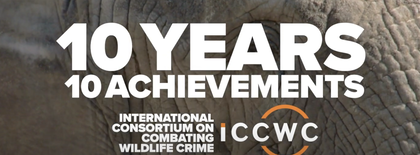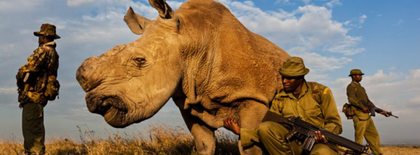Implementation Support
Support is provided based on a targeted approach, needs identified and requests received, and is aimed at strengthening criminal justice systems and providing coordinated support to further enhance countries' responses to combat wildlife crime.
A diverse range of activities have been conducted and initiatives supported by the Consortium in many countries and regions across the world. For more details, see the ICCWC Annual Reports available here.
Implementation of the ICCWC Wildlife and Forest Crime Analytic Toolkit and Indicator Framework for Wildlife and Forest Crime
A significant number of countries have completed assessments of wildlife crime responses to date using the ICCWC Toolkit or the ICCWC Indicator Framework. For further details on progress in the different countries, please click here.
Find out more about these tools on the Resources page.
Operations
Thunder Operations are annual operations through which a global crackdown take place across borders to combat wildlife crime.
-
THUNDER 2024
-
THUNDER 2023
-
THUNDER 2022
-
THUNDER 2021
-
THUNDER 2020
-
THUNDERBALL (2019)
-
THUNDERSTORM (2018)
-
THUNDERBIRD (2017)
-
INFRA TERRA (2014)
- PAWS (2014)
In addition to the Thunder-series, ICCWC has supported the coordination of a number of additional regional and global operations, including:
- INFRA TERRA (2014)
- PAWS (2014)
Wildlife Enforcement Networks
A number of networks with different purposes and objectives focused on combating wildlife crime, and with varying degrees of formality and organization, have been developed across the world. In most cases, these networks are known as Wildlife Enforcement Networks (WENs). These WENs, if functioning optimally, can play an important role in facilitating increased collaboration and coordination to combat wildlife crime.
To support the development of WENs, ICCWC is also supporting the implementation of the ICCWC Guidelines for Wildlife Enforcement Networks in selected regions. These outline the key considerations in the development of a new WEN, and also provide a self-assessment tool for use by existing WENs to assist them in evaluating their level of maturity and/or operational performance and identify areas that could be further strengthened.
Since 2013, ICCWC has convened a number of Global Meetings of WENs to share experiences and consider measures to further strengthen WENs, promote their operational effectiveness, and enhance cooperation and interaction.
ICCWC has supported:
-
Horn of Africa Wildlife Enforcement Network (HAWEN).
-
South Asia Wildlife Enforcement Network (SAWEN).
-
South American Wildlife Enforcement Network (SudWEN). Read more here.
Related content
Focus stories
10 years, 10 achievements During its first decade (2010-2020), ICCWC supported the initiatives of countries that achieved a wide range of impactful outcomes. Read more here. Success Stories
Who we are
The International Consortium on Combating Wildlife Crime (ICCWC) is the collaborative partnership of five inter-governmental organizations with complimentary and specialized mandates through which they are uniquely placed to collectively deliver a range of comprehensive interventions to strengthen criminal justice systems and build long-term capacity among authorities to address wildlife crime...



